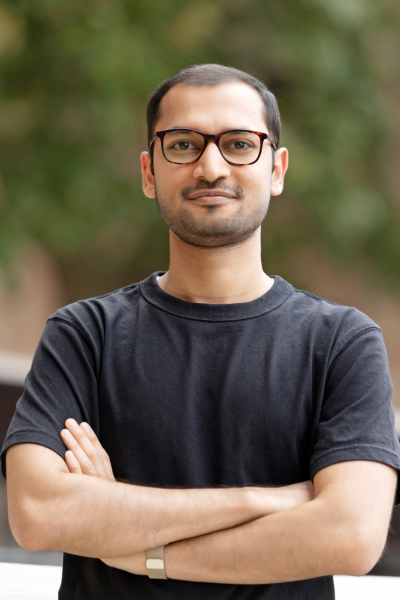- Research,
Portrait of Dhruv Jain, PhD candidate at Toulouse School of Economics, specialist in the economic issues of developing countries

After completing a first Master’s degree in Economics in India, Dhruv Jain worked as a consultant at the World Bank, an experience that strengthened his conviction: to fully contribute to addressing major economic challenges, he needed to deepen his knowledge and research methods.
In 2019, he therefore chose TSE among other prestigious universities. "TSE offered free tuition, which was a major advantage. But above all, it is the best economics school in Europe in my field, industrial organization and development," he explains. Originally from New Delhi, he then enrolled in the Master 2 program in Economic Theory and Econometrics, before embarking on a PhD.
In 2019, he therefore chose TSE among other prestigious universities. "TSE offered free tuition, which was a major advantage. But above all, it is the best economics school in Europe in my field, industrial organization and development," he explains. Originally from New Delhi, he then enrolled in the Master 2 program in Economic Theory and Econometrics, before embarking on a PhD.
A Dissertation with Strong Policy Impact
Supervised jointly by Emmanuelle Auriol, Matteo Bobba, and Olivier De Groote, his dissertation, which he will defend in October 2025, examines the impact of economic policies in India, focusing on three key issues: the adoption of VAT between 2003 and 2008, which increased firms’ productivity by 10%; the 2016 demonetization, which led to higher dropout rates in private schools, revealing credit constraints; and finally, a meta-analysis of the effects of infrastructure (transport, energy, and digital) on development (production, employment, inequality, education, etc.).
For the doctoral candidate, economic research must have a tangible impact. This applied approach lies at the core of his work, shaped by his experience at the World Bank, where he witnessed firsthand the importance of public policies on the ground. Dhruv Jain employs advanced empirical methods, combining econometrics and data analysis to propose concrete solutions.
For the doctoral candidate, economic research must have a tangible impact. This applied approach lies at the core of his work, shaped by his experience at the World Bank, where he witnessed firsthand the importance of public policies on the ground. Dhruv Jain employs advanced empirical methods, combining econometrics and data analysis to propose concrete solutions.
At the World Bank, I worked on very contemporary issues of high importance for governments. Having a direct impact on public policies is very rewarding.
His research, conducted in collaboration with international experts such as Stéphane Straub (former professor at TSE and current Chief Economist at the World Bank), reflects this commitment to combining academic rigor with social relevance.
Teaching: A Formative Experience
As a teaching assistant at TSE for four years, Dhruv Jain taught demanding courses such as Program Evaluation and Applied Econometrics. "I really enjoyed teaching, even though these were not the most popular courses!" he admits. This experience allowed him to develop pedagogical skills while also strengthening his command of the methods he uses in his research.
During his PhD, the young economist also enjoyed life in the research lab. He emphasizes the importance of informal exchanges with fellow doctoral students. "Sharing an office, discussing our research, as well as the ups and downs of the PhD, is invaluable".
Return to the World Bank or a New Start?
As he approaches the defense of his dissertation, Dhruv Jain is already looking beyond the PhD. He is applying for positions in central banks, international institutions, and economic consulting firms. His preferred destinations include London, Brussels, Paris, and Singapore, but also Washington D.C. if an opportunity arises at the World Bank. His goal is clear: to see his recommendations translated into action. The World Bank offers this possibility, with a wide variety of missions and countries of engagement.
Advice for Future PhD Students
For Dhruv Jain, the key to a successful PhD lies in having clear motivations: "It is a long commitment, almost six years. Without a precise goal, it is easy to get discouraged." He also recommends gaining professional experience before starting the PhD, especially for those aiming for the private sector. "My time at the World Bank was extremely valuable. For someone who has only studied, entering the private labor market can be more challenging."
